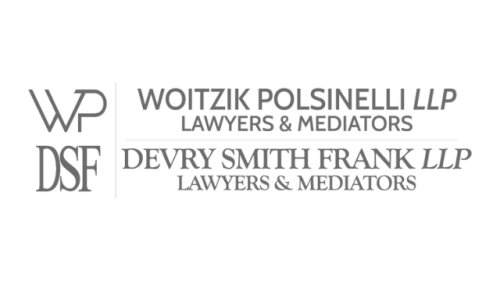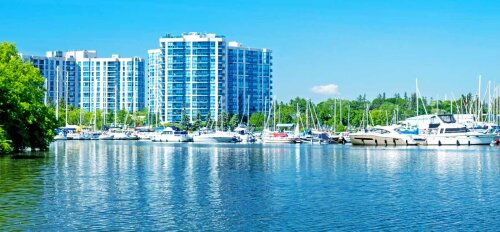Best Renewable & Alternative Energy Lawyers in Whitby
Share your needs with us, get contacted by law firms.
Free. Takes 2 min.
List of the best lawyers in Whitby, Canada
About Renewable & Alternative Energy Law in Whitby, Canada
Whitby, located in Ontario’s Durham Region, is increasingly taking steps towards sustainable energy solutions. Renewable and alternative energy refers to power sources such as solar, wind, hydro, geothermal, and biomass, which are vital for reducing environmental impact and meeting energy needs responsibly. In Whitby, both municipal and provincial regulations guide how these energy sources are developed, installed, and maintained. Energy projects must comply with Ontario’s Green Energy Act, the Environmental Protection Act, and local zoning by-laws, making it crucial for individuals and businesses to understand legal obligations when pursuing renewable energy initiatives.
Why You May Need a Lawyer
Legal issues can arise at various stages of planning, installing, or operating renewable energy systems. Common scenarios where you might need a lawyer include:
- Securing permits for solar panels or wind turbines on private or commercial properties
- Complying with local and provincial zoning or environmental regulations
- Negotiating contracts with installers, suppliers, or co-owners
- Addressing disputes concerning property lines, easements, or shared energy resources
- Managing risks and liabilities associated with energy production or distribution
- Applying for government incentives, rebates, or funding related to renewable energy projects
- Resolving regulatory compliance issues if a project is challenged or penalized
- Facilitating real estate transactions involving properties with existing energy installations
Having specialized legal guidance can help you reduce risks, maximize benefits, and ensure your project is compliant with all applicable laws.
Local Laws Overview
Renewable and alternative energy in Whitby is regulated by a mix of federal, provincial, and municipal legislation. Key aspects of local law include:
- Zoning and Land Use By-laws: These control where solar panels, wind turbines, or other infrastructure can be placed and often outline requirements for setbacks, height, or community impact assessments.
- Permitting Processes: Most renewable energy projects require formal approval from the municipality. This may involve submitting site plans, engineering reports, and environmental impact assessments.
- Provincial Regulations: Ontario’s Green Energy Act (despite changes in recent years) and the Environmental Protection Act set out rules about environmental safety, grid connection, and operations. The Independent Electricity System Operator (IESO) oversees grid-related approvals.
- Heritage and Conservation Considerations: Installations must not interfere with protected heritage sites or environmentally sensitive areas.
- Net Metering and Feed-in Tariffs: Eligibility rules allow property owners to sell excess generated energy back to the grid, but these programs have specific application procedures and compliance measures.
Since requirements can change and may differ based on project type, seeking current legal advice is important before proceeding with any project.
Frequently Asked Questions
What types of renewable energy systems are most common in Whitby?
Solar photovoltaic panels and small wind turbines are most common for property owners. Larger commercial or municipal projects may also use biomass or geothermal systems, but these are less frequently seen in residential settings.
Do I need a permit to install solar panels on my home or business?
Yes. In Whitby, a building permit is usually required for rooftop or ground-mounted solar panels. Permits ensure compliance with zoning by-laws, electrical codes, and safety regulations.
Are there restrictions on where wind turbines can be installed?
Yes. Wind turbines are subject to strict local zoning by-laws regarding size, height, noise levels, and distance from neighboring properties. Some zones prohibit them entirely, while others have specific application processes.
What incentives exist to support renewable energy in Whitby?
Provincial and federal programs may offer rebates, tax credits, or grants for installing qualifying renewable energy systems. The availability and amount can vary, so it is best to check with local authorities or a legal professional for current options.
Can I sell excess electricity back to the grid?
Yes. Ontario’s net metering program enables eligible participants to supply surplus energy back to the grid in exchange for credits on their electricity bills. There are rules and application steps to qualify.
What are the environmental assessment requirements?
Larger projects may require an environmental assessment to evaluate potential impacts on local ecosystems, watercourses, or heritage sites. Requirements depend on project size and location.
Who is responsible for maintenance and liability for renewable energy installations?
Property owners generally remain responsible for the operation, maintenance, and safety of their installations. Contracts with installers or energy providers should clarify these obligations and any insurance needs.
Are there legal issues when selling a property with renewable energy systems?
Yes. Buyers will want confirmation that all installations are permitted, up-to-code, and transferrable. Lawyers can ensure compliance and manage contract disclosures during the sale process.
Can disputes arise with neighbors over renewable energy systems?
Disputes can occur over property boundaries, shading, noise from turbines, or visual impact. Legal guidance can help mediate or resolve these issues.
Is it necessary to involve a lawyer early in the project planning phase?
It is recommended. Early legal advice ensures your project is structured for compliance, risk minimization, and access to available incentives or funding.
Additional Resources
- Town of Whitby - Building and Planning Department for permits and zoning information
- Ontario Ministry of Energy for provincial regulations and incentive programs
- Independent Electricity System Operator (IESO) for grid connection and net metering guidelines
- Durham Region Environmental Advisory Committee for local sustainability initiatives
- Environmental Commissioner of Ontario for reports and environmental assessments
- Solar Energy Society of Canada and Canadian Wind Energy Association for industry best practices and contacts
- Private legal clinics and legal aid services for initial legal consultations
Next Steps
If you are considering a renewable or alternative energy project in Whitby, begin by gathering information about your property and potential energy sources. Consult with the Town of Whitby’s Building and Planning Department to determine local permit requirements and zoning limitations. Next, reach out to a lawyer with experience in renewable and alternative energy law. They can help you:
- Review your project for legal compliance and risk management
- Draft and negotiate contracts with installers or energy partners
- Navigate regulatory approvals and incentives
- Deal with any disputes or issues that arise before, during, or after installation
Keep records of all applications, permits, and communications, and do not hesitate to seek professional legal advice early in the process. Taking these steps will help you achieve a successful and compliant renewable energy project in Whitby, Canada.
Lawzana helps you find the best lawyers and law firms in Whitby through a curated and pre-screened list of qualified legal professionals. Our platform offers rankings and detailed profiles of attorneys and law firms, allowing you to compare based on practice areas, including Renewable & Alternative Energy, experience, and client feedback.
Each profile includes a description of the firm's areas of practice, client reviews, team members and partners, year of establishment, spoken languages, office locations, contact information, social media presence, and any published articles or resources. Most firms on our platform speak English and are experienced in both local and international legal matters.
Get a quote from top-rated law firms in Whitby, Canada — quickly, securely, and without unnecessary hassle.
Disclaimer:
The information provided on this page is for general informational purposes only and does not constitute legal advice. While we strive to ensure the accuracy and relevance of the content, legal information may change over time, and interpretations of the law can vary. You should always consult with a qualified legal professional for advice specific to your situation.
We disclaim all liability for actions taken or not taken based on the content of this page. If you believe any information is incorrect or outdated, please contact us, and we will review and update it where appropriate.









